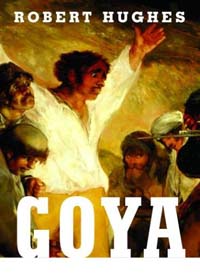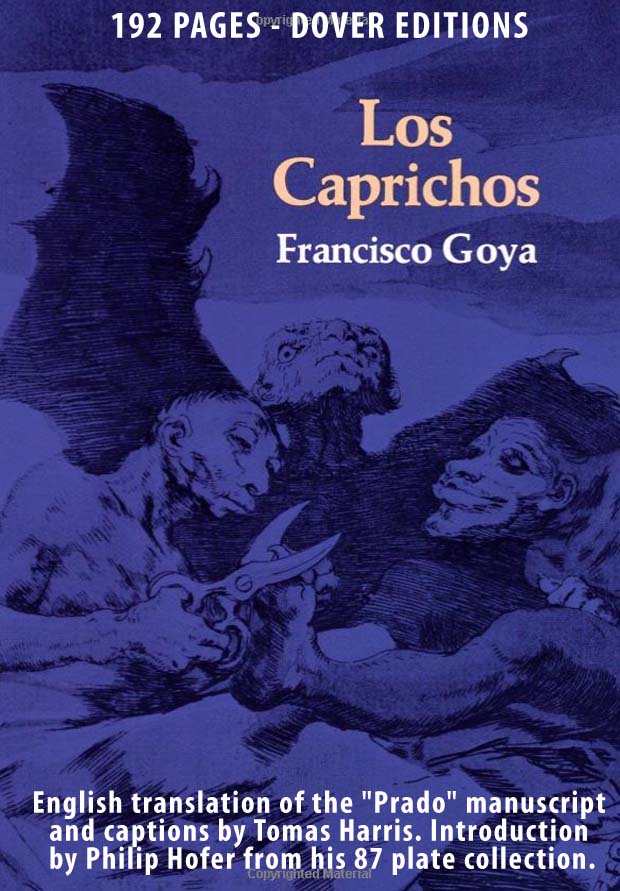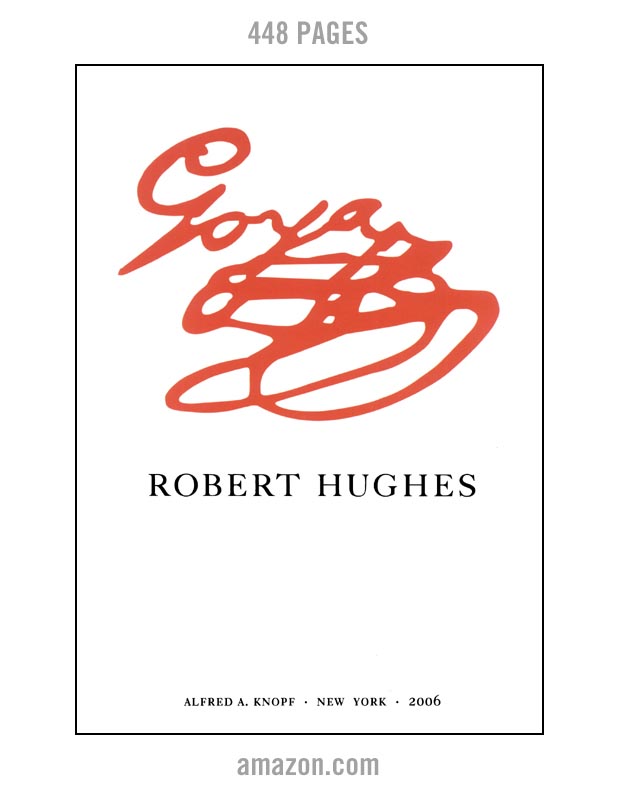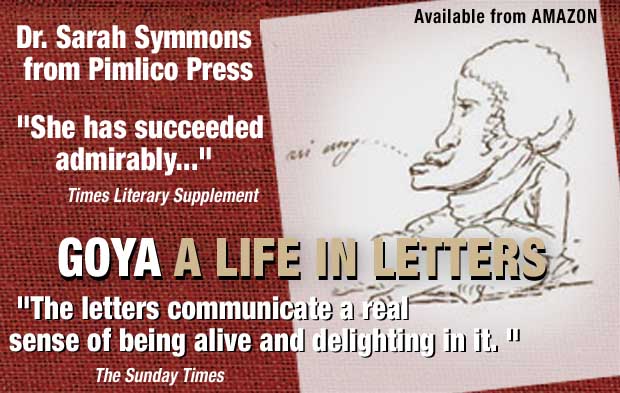Goya by Robert Hughes

Goya
By Robert Hughes
Published by Alfred Knopf, November 2003*
ISBN 0394580281
448 pages
Printed in Spain
Dustjacket text here.
This book appears to have grown out of the review essay Hughes wrote in 1989 for the Goya in the Age of Enlightenment exhibit in New York City. He cannibalizes a number of the phrases and ideas he used in that essay, and has added a great deal more to flesh out this 448 page book.
Motivated by an affection (which is obvious on these pages) for his subject, and also a seeming identification, Hughes travels through the history of Goya's life and his artwork with hard words for (what he supposes) are Goya's enemies, understanding for Goya's friends and affections, and some back-and-forth on what are the real facts about the various legends that are thrown up around the Spanish painter. At times, Hughes moves very fast through events, and he is apparently more excited to discuss some things (for example, the Duchess of Alba, or the Maja Desnuda) versus some other things (e.g., The Milkmaid of Bordeaux.) Hughes energy and easy writing style makes this book sometimes much less an art history book versus a kind of personal journey into Goya, with Hughes as the enthusiastic guide.
The reproduction quality of the images in this book are excellent, though too small (the volume is 9.5" x 11", approximately) and I came across but one production error (a typo) in all of these many pages. A thorough review addressing some of the ideas in Hughes book will be presented on the next major update here on the Goya site.
(Below) An anonymous rebut to Hughes' book which I received via e-mail:
On the Hughes bio, the reviewer mentions finding only one typo. I found several, the most obvious being the mistaken citation of "Ben Turpin" for "Dick Turpin" in discussing the English semi-legendary highwayman (Ben Turpin was a silent film comedian). There are others; but I was most struck by Hughes's discussion of Allegory of the Constitution (pp 270-271), in which either the figure or the one Hughes references is reversed; right means left. It is odd that anyone who examines the text with any attentiveness would not have picked up on this point. At other points, there are discrepancies between titles of works, as they are captioned and as they are cited in the text. One senses a somewhat cursory copy-edit; and that Hughes himself may not have emerged from his accident with a good command of his observational abilities. One other point: I DO find the quality and small size of the figures to be problematical. I found it difficult to identify many of the details Hughes cited in his commentary.
AMAZON
Goya The Terrible Sublime - Graphic Novel - (Spanish Edition) - Amazon
"From this headlong seizure of life we should not expect a calm and refined art, nor a reflective one. Yet Goya was more than a Nietzschean egoist riding roughshod over the world to assert his supermanhood. He was receptive to all shades of feeling, and it was his extreme sensitivity as well as his muscular temerity that actuated his assaults on the outrageous society of Spain." From Thomas Craven's essay on Goya from MEN OF ART (1931).
"...Loneliness has its limits, for Goya was not a prophet but a painter. If he had not been a painter his attitude to life would have found expression only in preaching or suicide." From Andre Malroux's essay in SATURN: AN ESSAY ON GOYA (1957).
"Goya is always a great artist, often a frightening one...light and shade play upon atrocious horrors." From Charles Baudelaire's essay on Goya from CURIOSITES ESTRANGERS (1842).
"[An] extraordinary mingling of hatred and compassion, despair and sardonic humour, realism and fantasy." From the foreword by Aldous Huxley to THE COMPLETE ETCHINGS OF GOYA (1962).
"His analysis in paint, chalk and ink of mass disaster and human frailty pointed to someone obsessed with the chaos of existence..." From the book on Goya by Sarah Symmons (1998).
"I cannot forgive you for admiring Goya...I find nothing in the least pleasing about his paintings or his etchings..." From a letter to (spanish) Duchess Colonna from the French writer Prosper Merimee (1869).
GOYA : Los Caprichos - Dover Edition - Amazon




